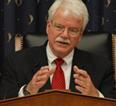Nearly two-thirds of Americans obtain health coverage either through their employer or their spouses’ employer. As the unemployment and underemployment rates continue to grow, so will the number of uninsured. Even if these workers get another job, they likely face lower pay, fewer benefits and little access to affordable health care.
The American Recovery and Reinvestment Act will assist these workers by providing access to their former employer’s group health plan through enrollment in COBRA coverage beyond the current limit of 18 months. In addition, it will assist recently laid-off workers in receiving affordable COBRA coverage by covering a portion of the monthly premium. The nonpartisan Congressional Budget Office estimates that this package would help 8.2 million people keep health care coverage for themselves and their families.
- Workers losing their job on or after September 1, 2008 as a result of the economic downturn would be eligible to receive a 65 percent subsidy towards their COBRA premium for up to 12 months.
- Studies show that the vast majority of COBRA-eligible individuals never take advantage of COBRA because, without a subsidy, they cannot afford the premium.
Extend COBRA coverage for older and tenured workers
- Workers age 55 and older and those who have worked for their employer for 10 or more years will be able to retain their COBRA coverage until they become Medicare-eligible or secure coverage through a subsequent employer.
- Electing COBRA coverage is likely the most preferred option for workers who have lost their jobs. Despite the obligation to pay up to 102 percent of the premium, millions of Americans prefer to keep the same plan with the same doctors. In addition, older and tenured workers are more likely to elect COBRA coverage because they may be denied coverage in the individual market as a result of cost or preexisting conditions, or face steep premiums.
- Older workers face difficulties in securing new employment. Two-years after suffering a job loss, only 55 to 60 percent of older unemployed are working. This is significantly less than the re-employment rate for younger workers. And, of those who do secure re-employment, more than a quarter who previously worked full-time are now only working part-time.
Increase funding to states who provide Medicaid coverage to unemployed and uninsured individuals who may not be eligible for COBRA





















